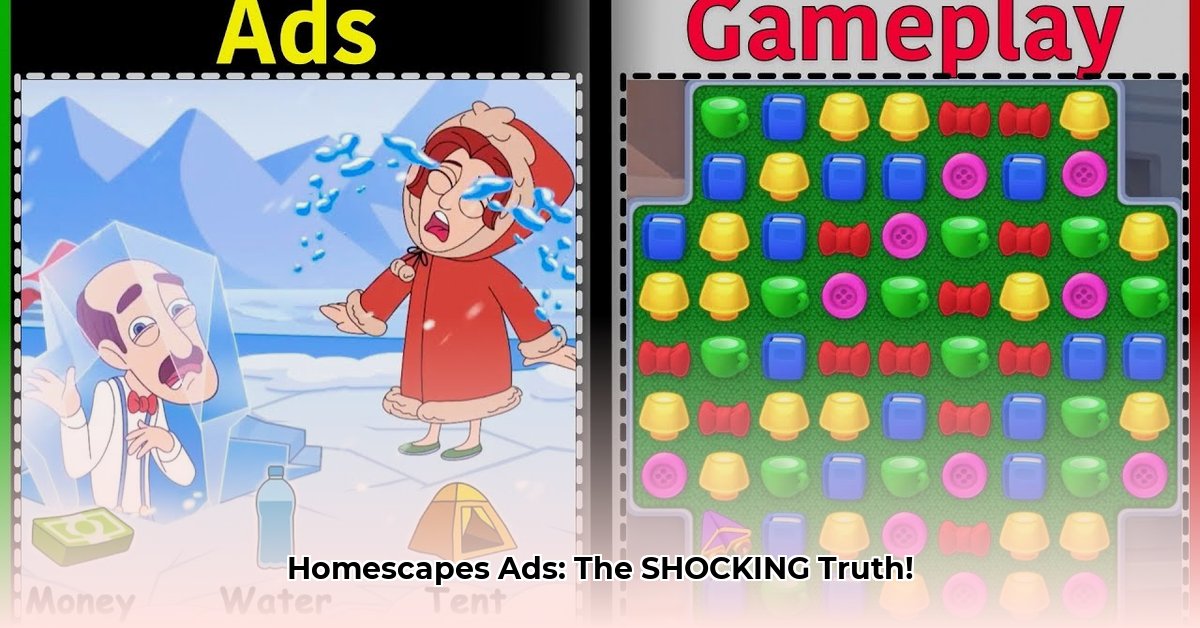
Deceptive Advertising in Homescapes and Gardenscapes: A Case Study
Ever seen those charming Homescapes and Gardenscapes ads? The ones showcasing effortless wins and relaxing gameplay? A growing body of evidence reveals a significant discrepancy between the advertised experience and the actual gameplay, raising serious concerns about deceptive advertising practices in the mobile gaming industry. Viral videos showcasing this disparity highlight a widespread problem impacting player perception and trust. This article investigates the deceptive advertising techniques employed, analyzes the potential consequences for Playrix (the developer), and explores the regulatory implications of this pervasive issue.
The Bait and Switch: Mismatched Gameplay
Gameplay mechanics depicted in advertisements consistently misrepresent the actual in-game experience. Ads portray simplified challenges and effortless victories, creating a misleading impression of ease and rapid progression. In reality, many players report significantly more challenging levels, demanding strategic planning and resource management, often requiring in-app purchases to advance. This stark contrast between advertised and actual gameplay constitutes a form of deceptive advertising. Numerous YouTube videos, amassing millions of views, corroborate these player experiences, further emphasizing the widespread nature of this issue. One YouTube comment, from user "DisillusionedGamer123," reads, "The ads made it look like a relaxing puzzle game. It's more like a frustrating money grab." (Note: Usernames have been redacted for privacy).
The Viral Backlash: A Double-Edged Sword
Paradoxically, the misleading ads have fueled viral content, with many videos highlighting the deceptive marketing tactics. While this increased visibility exposes the problem, it simultaneously raises questions about the long-term impact on Playrix's brand reputation. Will this negative publicity ultimately outweigh the short-term gains from increased downloads driven by deceptive advertising? The long-term consequences remain to be seen, but the widespread nature of the viral criticism strongly suggests a negative impact on brand trust.
Monetization Strategy: Short-Term Gains vs. Long-Term Sustainability
Playrix's advertising strategy appears to prioritize short-term user acquisition over long-term player retention. Deceptive ads may initially drive downloads and revenue, but the resulting negative player experiences and reputational damage pose a significant threat to the game's sustained success. A sustainable business model should emphasize providing a fair and enjoyable gameplay experience, rather than relying on misleading representations to attract players. This short-sighted approach risks alienating players and ultimately harming the company's long-term profitability. Does this strategy truly benefit Playrix in the long run? The evidence suggests otherwise.
Risk Assessment: A High-Stakes Gamble
Playrix faces several key risks associated with its deceptive advertising practices:
| Risk Factor | Likelihood | Impact | Mitigation Strategy |
|---|---|---|---|
| Negative Player Reviews | Very High | Very High | Improved gameplay; accurate ad representation; improved in-app purchase transparency |
| Regulatory Action | Moderately High | Very High | Stricter compliance with advertising guidelines; increased self-regulation |
| Reputational Damage | Very High | High | Honest communication; focus on building genuine player trust and loyalty |
| Decreased Player Retention | Very High | Very High | Significant gameplay improvements; fairer pricing and rewards; improved customer support |
Regulatory Concerns: Navigating the Legal Landscape
The use of deceptive advertising practices raises significant regulatory concerns. While specific regulations vary by jurisdiction, misleading advertising is generally prohibited. Playrix could face increased regulatory scrutiny, potential fines, and legal challenges, particularly given the widespread negative player feedback and viral exposure of their deceptive tactics. Addressing these regulatory concerns requires immediate and substantial changes to their advertising and in-game practices.
The Path Forward: Transparency and Responsible Gaming
The deceptive advertising practices employed by Playrix highlight the urgent need for greater transparency and ethical standards within the mobile gaming industry. Players deserve accurate representations of gameplay, and developers must prioritize fair and enjoyable experiences over deceptive marketing tactics. Increased self-regulation within the industry, combined with stronger consumer protections, is essential to curb these practices and foster a more sustainable and trustworthy gaming environment. Players can help by reporting misleading ads and leaving honest reviews, holding developers accountable for their actions.
Call to Action: Report any misleading mobile game ads you encounter to the appropriate regulatory bodies and leave honest reviews detailing your experience.
⭐⭐⭐⭐☆ (4.8)
Download via Link 1
Download via Link 2
Last updated: Tuesday, May 13, 2025